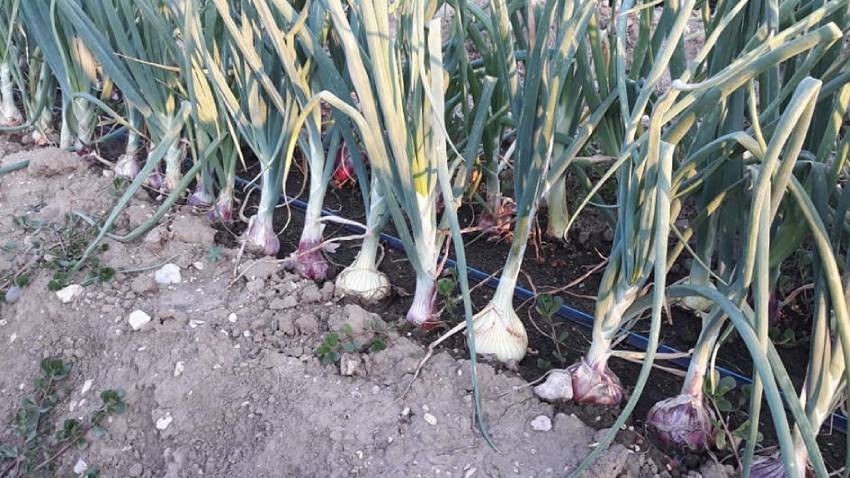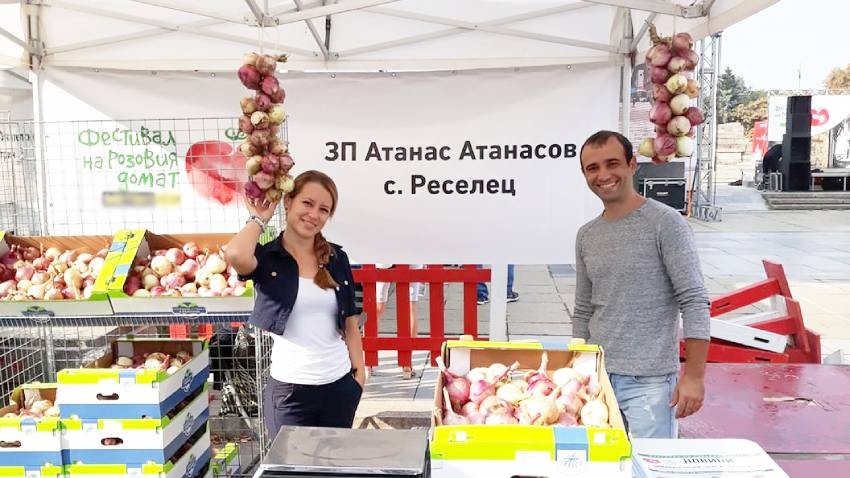Besides with the beauty of its landscapes, Reselets, a village surrounded by beautiful canyons and sheer cliffs, is also famed for a special kind of onions grown in the region of the village and nowhere else.
In this part of Bulgaria’s Northwest, onions rule over everything eaten in every home. But they are not just any onions, but a very special onion variety. The locals claim they can be eaten like apples. Atanas Atanassov, economist by profession, came home to Reselets some time ago to start growing this unique vegetable. “I used to live in London, and I decided to come and live in this village in what is probably the poorest region of Europe, because I believed you can be happy in Bulgaria, in a village, that it is possible to earn enough money here,” Atanas says in an interview with BNR’s correspondent in Pleven Latinka Svetozarova.
But what makes this ordinary looking vegetable so special? Most of all the fact that it is sweet, and juicy as a… ripe pear. “It is not hot in the least, just a bit so you know you are eating an onion,” Atanas explains and adds:

“My research has shown that the taste is connected with the river and the water. The location where it is grown is very specific – the mouth of the river Ruchene which traverses a karst region with caves. The area where we grow it has limestone deposits that are thousands of years old which actually neutralize their pungency. It is the same thing with the water we use for irrigation. The climate also matters – there are two river canyons that cross here and the air changes thousands of times a day. Many have tried their hand at growing the onions elsewhere – getting the shape and size right, but never the taste,” Atanas Atanassov says.

Reselets onions have been grown in the village for close to 600 years, and they have become emblematic of the entire region - the locals have actually dedicated a festival to them. Every autumn it brings together onion growers and guests from all over the country who “pay tribute” to their uniqueness. The onion bulbs vary in shape, and can be pink to purple coloured, or yellow to brown. And as they are watered regularly, the onions are crispy and juicy. They are also rich in minerals and salts, and have many health benefits – especially with diabetes and cardiovascular diseases.

Where and how are these onions used?
“More often than not both hands are used to break the bulb and eat it fresh,” Atanas says. “If not it is used as an ingredient in salads, and most of all at wintertime – that is when it is in demand most. Especially as Christmas nears,with pork. When cooking the traditional pork, add the onions five minutes before taking the meat out of the oven. Then you can eat the onions and forget about the meat,” Atanas says.
Growing Reselets onions is hard work because everything is done by hand – ploughing, harrowing, then planting. They have to be watered every day, and by the beginning of September – harvested. The onions are then braided and can last until December-January. A traditional recipe for Reselets is luchnik made out of the local onion variety, eggs and cheese.
More about food in Bulgaria:
Interview by Latinka Svetozarova, BNR correspondent in Pleven
Text by Veneta Nikolova
Photos: Facebook /Atanas Atanassov
A celebration of children’s love of books and imagination will take place on 25 October in Los Angeles, organised by the Bulgarian School “St. St. Cyril and Methodius” , according to the school’s Facebook page. The Parade of Books and Fairy Tale..
Romania renegotiates its National Recovery and Resilience Plan with the EU The European Commission has approved a new version of Romania's National Recovery and Resilience Plan, announced Minister for European Funds Dragos Păslaru, quoted by..
For Chrissy Brand, a freelance journalist and long-time radio enthusiast from the UK, the trip to Bulgaria didn't start with a call to a travel agency or a low-cost airline ticket. It began decades ago in a quiet room filled with the humming of an old..
Over 80% of Bulgarians are expected to start using artificial intelligence in the next three years , across all age groups. Today, it is almost..
"We cannot escape from modern technologies, but we must think about how we can use artificial intelligence to improve the quality of..
Serbians around the world mark one year after Novi Sad tragedy On November 1, Serbians abroad will join the call of..

+359 2 9336 661
